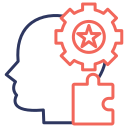
Guide to Starting with Open Source Contributions in English
Embarking on the journey of open source contribution can be both exciting and a bit overwhelming for newcomers. Open source projects provide unique opportunities for collaboration, skill enhancement, and community involvement. This guide seeks to demystify the process for beginners, offering actionable insights and practical advice to set you on the right path. Whether you are a developer, a writer, or simply someone looking to get involved, the steps outlined here will help you navigate your first contributions and make a positive impact.
Previous slide
Next slide


Assessing Your Interests
Before committing to a project, reflect on the topics or technologies that excite you most. Whether your passion lies in web development, data science, education, or user experience, there is likely an open source project that matches your interests. When you contribute to something you care about, your enthusiasm will sustain your motivation through learning curves and challenges. Begin by identifying projects relevant to your current skills or areas where you wish to grow.

Evaluating Project Activity and Community
The vitality of a project’s community can greatly impact your experience as a contributor. Look for projects with recent updates, active issue discussions, and maintainers who are responsive to pull requests. A supportive and communicative community often translates to quicker feedback and guidance. Diving into inactive projects can be discouraging due to a lack of response or outdated documentation, so prioritizing active communities is a key factor in a positive open source journey.

Looking for Good First Issues
Many projects specifically label beginner-friendly tasks, sometimes called “good first issues.” These are designed for newcomers and typically include ample guidance and clear descriptions, making the onboarding experience smoother. Investigate the project’s issue tracker for such labels and review how previous first-time contributors were engaged by the community. By starting with these manageable tasks, you can gradually build confidence and familiarity with the project’s workflow.
Getting Set Up
Most open source projects specify the tools and technologies needed to run and modify their code. Carefully review the project’s documentation to identify required programming languages, frameworks, version control systems, and any additional dependencies. Take the time to install these components on your computer, verifying each with simple test commands. Mastery of these foundational tools is crucial not only for contributing but also for troubleshooting any issues that arise during your work.

Making Your First Contribution

Picking an Issue to Work On
Start with a manageable issue, ideally one that is straightforward and clearly described in the project’s issue tracker. If you’re uncertain about where to start, don’t hesitate to ask for clarification from maintainers or other contributors. Well-labeled issues, such as those marked “good first issue,” are designed to help you gain initial experience with minimal risk. Tackling simpler issues at first allows you to become familiar with the project’s development process before moving on to more complex tasks.

Writing Code or Making Documentation Updates
Once you’ve chosen an issue, develop your solution based on the information provided. Make sure to test your changes locally before preparing them for submission. If you’re working on documentation, follow the project’s style and formatting standards to ensure consistency. Pay attention to details, including clear commit messages and logical organization of your code or text. Effective communication of the problem you’re addressing and your proposed solution will smooth the review process and maximize the impact of your work.

Submitting a Pull Request
After completing your changes and testing them, the next step is to submit your work through a process known as a pull request. This usually involves creating a new branch in your version control system, pushing your updates to your fork, and requesting that these changes be merged into the main project. A well-written pull request should include a concise summary of your changes, references to any related issues, and any additional context the maintainers may need. Engaging in discussion or addressing feedback is a valuable part of the learning experience and helps ensure your contribution aligns with project goals.
Communicating on Issue Trackers and Forums
Most open source communities rely on public channels such as issue trackers, mailing lists, and forums to coordinate work and resolve problems. Don’t hesitate to ask questions, offer suggestions, or seek clarification when you encounter uncertainty. Clear, respectful communication increases your visibility and helps you build rapport with other contributors and maintainers. Remember that open source thrives on diversity and collaboration—constructive dialogue is key to the health of any project.
Learning from Feedback
Receiving feedback on your contributions is an integral part of the open source process. Reviewers might suggest changes, ask questions, or provide insights to make your work fit more seamlessly within the project. Approach this feedback with an open mind and a willingness to learn; constructive criticism is meant to help you improve. Over time, incorporating suggestions from others will make you a more effective contributor and strengthen the quality of your work.
Overcoming Imposter Syndrome
It is common for first-time contributors to doubt their abilities and wonder if they truly belong in the open source world. This feeling—known as imposter syndrome—can be discouraging, but it’s important to remember that all contributors started as beginners. The open source community is built on the collective effort of people at various skill levels, and your perspective is valuable. Taking small, manageable steps and celebrating your achievements, no matter how minor, can help boost your confidence and break through self-doubt.
Dealing with Technical Difficulties
Technical challenges are inevitable, especially when working with unfamiliar tools, languages, or complex codebases. When you encounter problems you can’t solve on your own, take advantage of the community’s collective knowledge by reaching out for help. Often, issues have been faced and resolved by others, and answers may already be available in documentation or forums. Persistence and resourcefulness are key traits of successful open source contributors, and each challenge overcome enhances your problem-solving skills.
Managing Time and Avoiding Burnout
Balancing open source contributions with work, studies, and personal life can be challenging. To prevent burnout, set realistic goals and establish boundaries for your involvement. Focus on quality over quantity and allow yourself breaks when needed. Remember that open source projects are ongoing and your contributions, no matter how spaced out, still make a difference. By managing your time responsibly, you can sustain your enthusiasm and continue making meaningful impacts over the long term.
Building Your Open Source Profile
Documenting Your Contributions
Carefully maintaining a record of your contributions allows you to reflect on your progress and share your experience with others. Many contributors keep their work organized on platforms such as GitHub, where project histories and pull requests are easily accessible. Providing clear explanations and summaries for each contribution not only aids your own recollection but also makes it easier for recruiters and collaborators to assess your expertise.
Showcasing Achievements
Highlight your most impactful contributions on your personal website, portfolio, or social media. Detailing the nature of your involvement—such as features added, bugs fixed, or documentation improved—illustrates your ability to collaborate, learn, and produce tangible results. This visibility can attract invitations to new projects, job offers, or speaking opportunities, expanding your reach and influence within the tech community.
Continuous Learning and Growth
Open source is an ever-evolving ecosystem, with new technologies and best practices emerging regularly. Stay engaged by learning from experienced contributors, following project updates, and seeking out new challenges. Each contribution deepens your knowledge and enhances your adaptability, which is invaluable in tech fields. Approach your open source journey as a long-term investment in both skill development and personal fulfillment.
